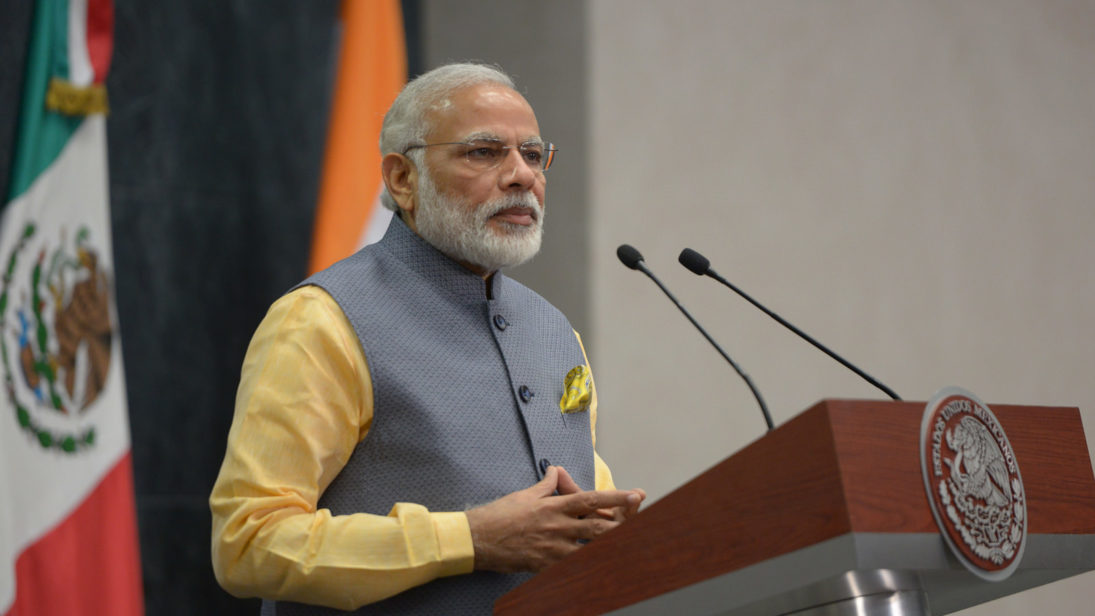
Since 2008, Kashmir has witnessed a series of mass protests, which last weeks or even months. Last year, 78 people died and 10,000 protestors were injured in mass protests and stone-pelting altercations, particularly after the Indian forces’ killing of Burhan Wani, commander of the militant separatist group Hizbul Mujahideen.
The Kashmir problem is typically analyzed through the prism of the India-Pakistan conflict. While Pakistan’s continued support and training of armed militant groups operating in Kashmir is problematic for India, the recent wave of protests is largely local in nature, with Kashmiris expressing their legitimate grievances. In response to these protests and dismal voter turnout during a recent by-poll election, Omar Abdullah, former Chief Minister of Jammu and Kashmir (J&K) from 2009 to 2015, rightly said that Pakistan “helps fan the flames, but the situation is not of their making.” Moreover, the Jammu and Ladakh regions of J&K have their own grievances and feel they have received unfair treatment from the Indian government despite their pro-India political orientation.
These developments indicate that Kashmir is approaching a dangerous political tipping point and India can no longer blame Pakistan for these persistent challenges. India must begin taking responsibility for the welfare of its citizens living in J&K. To assuage tensions, the Indian government should immediately implement the 2012 recommendations of the central government’s J&K Interlocutors Group, which called for the decentralization of government and increased attention to human rights issues and the rule of law.
Background
The J&K Interlocutors Group report is a comprehensive effort incorporating the voices of broad swathes of society in J&K through interactions with more than 700 delegations in all the 22 districts of the state. The recent escalation in protests only underscore the report’s continued relevance five years later, as most of its recommendations largely went unimplemented. Many believe that if the group’s recommendations had been implemented, the current situation in Kashmir could have been prevented.
Three Regional Councils
A key political recommendation of the report is devolution or the decentralization of power through the creation of three regional councils for the Jammu, Kashmir, and Ladakh regions of J&K. These three regions are geographically, ethnically, and culturally distinct from one another. Jammu is primarily comprised of Dogra Hindus, Kashmir of majority Kashmiri Muslims, and Ladakh of Tibetan Buddhists and Shia Muslims. Before J&K’s accession to India in 1947, Hindu Dogra monarchical rule was marked by a strong regional bias against Kashmiris and religious discrimination against Muslims. The imprisonment of the popularly-elected Kashmiri leader Sheikh Abdullah in 1953, along with removal of the democratically-elected state government in 1984 and rigged state elections of 1962, 1967, 1972, and 1987, further alienated the Kashmiri masses. The violent militancy of the 1990s was followed by relative peace from 2003 to 2007. However, even during this respite, the central government did not take comprehensive steps to improve the beleaguered state’s local institutions or seek the input of stakeholders on how to move forward. Consequently, the state needs a genuine plan for autonomy to fulfill Article 370 of the Constitution.
Towards this end, the 2012 report recommends allotting executive and financial powers to three regional councils to firmly establish autonomous rule. Resources would be divided among these regional councils so that they could implement policies according to their specific economic and social needs. Such decentralization would establish more transparent and accountable regional councils, creating better governance and employment opportunities with potential positive ramifications for improving rule of law in Kashmir.

Human Rights and Rule of Law Reforms
Human rights and the rule of law represent another area of reforms recommended by the J&K Interlocutors Group. The report calls for the release of stone-pelters and political prisoners accused of minor offenses and amnesty for militants who renounce violence. Such actions would ensure these individuals’ acceptance back into mainstream society. In July 2016, former Chief Minister Abdullah noted that civil unrest in Haryana and the Patildar caste agitation in Gujarat had not elicited the same violent response from Indian security forces as less severe incidents in Kashmir. To address this inequity, the 2012 report recommends a review of the Armed Forces Special Powers Act (AFSPA), which grants Indian security forces vast powers including rights to search, arrest, and even fire upon individuals associated with insurgent activities without a warrant. AFSPA also provides immunity from prosecution, which has resulted in gross injustices and human rights violations such as the killing of 3,642 civilians by security forces between 1990 and 2011. Both Abdullah and current Chief Minister Mehbooba Mufti have advocated for the revocation of AFSPA in some areas.
Conclusion
Clearly, the central government’s current Kashmir policies have failed to end mass protests and address legitimate grievances. Regional councils would address these issues of governance and employment and would cater to the individual needs of three diverse regions of J&K. This would provide the political space for Kashmiris to voice their needs and opinions. In addition, human rights protections and rule of law reforms would help reestablish faith in the justice system. The current civil unrest in Kashmir indicates that India can no longer blame its problems in this region on others—including Pakistan—but must seek to implement the solutions set forward by experts and voices on the ground in order to secure the political rights and welfare of all citizens in J&K.
***
Editor’s Note: Click here to read this article in Urdu
Image 1: Presidencia de la Republica Mexicana via Flickr
Image 2: Kashmir Global via Flickr


